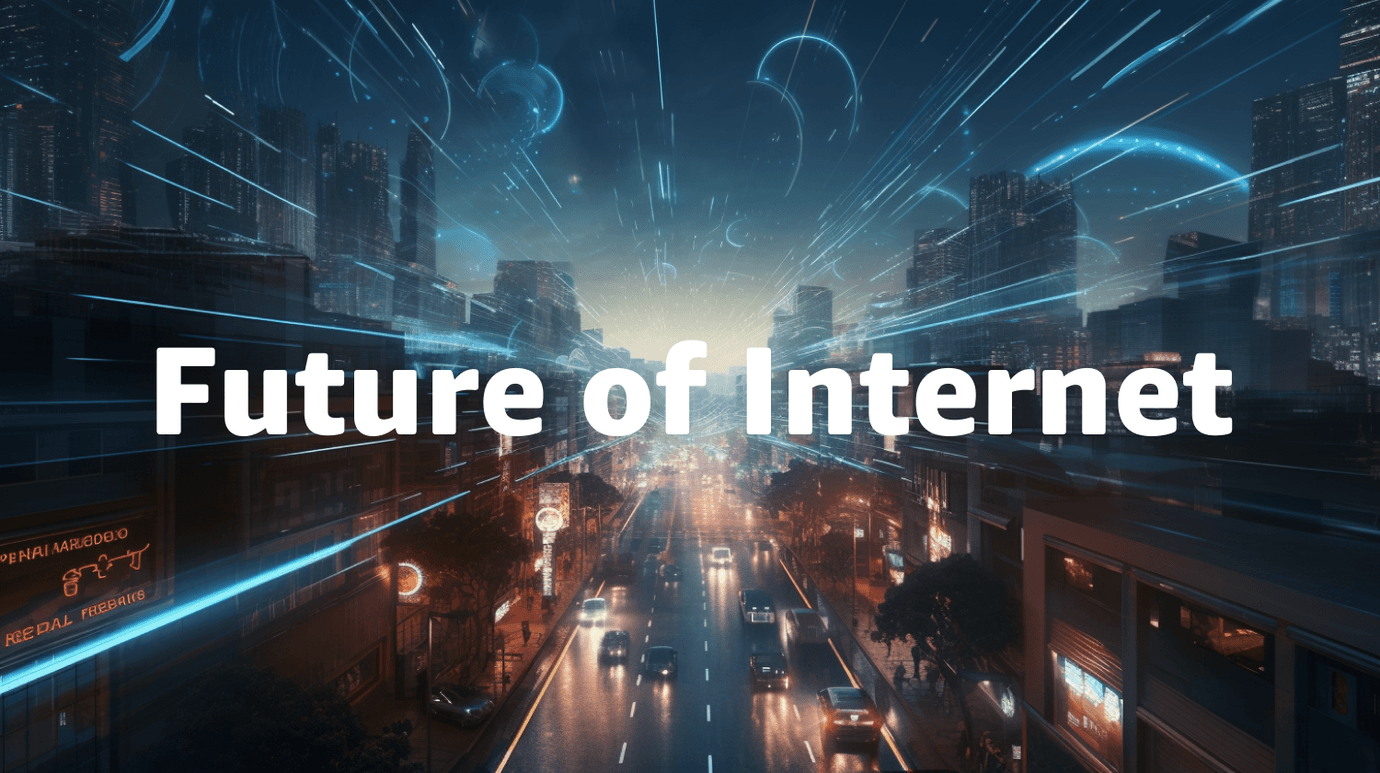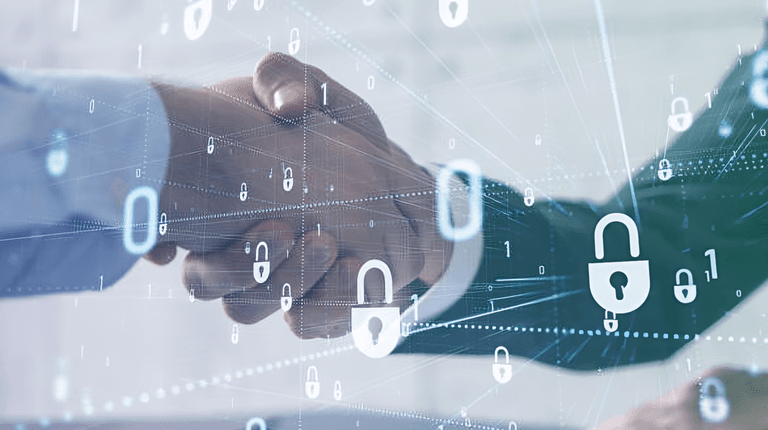Internet of the Future: What Role Will the Web3 Play in our Everyday Lives?

Explore the pivotal role Web3 plays in reshaping digital experiences and revolutionizing how we interact with the online world, bringing a decentralized future.
Imagine a world where you have complete control over your digital life - the power to truly own your financial assets, tweets, Instagram pics, and so on. Welcome to the exciting realm of Web3! This new chapter in the internet's evolution promises to revolutionize how we interact with the digital world, making it more democratic, secure, and user-centric. In this article, we'll explore the fascinating world of Web3 and how it's set to transform our everyday lives, from the way we socialize to how we manage our finances.
TL;DR:
- Web3 is a set of concepts following the natural progression of Web1 (read-only) to Web2 (read, write)
- Core principles of Web3 include decentralization, open access, censorship resistance, trustlessness, and individual ownership
- In the current Web2 state, big tech corporations like Google, Meta, or Amazon control the majority of the market - centralized authorities
- By using blockchain technology and decentralized governance structures, Web3 strives to redistribute the power to individuals, rather than organizations
From Web1 to Web3
To understand the role and importance of Web3, it is essential to familiarize ourselves with how the Internet evolved into this state. Each evolutionary step is marked by a significant change in the way the Internet was used and perceived.
Web1: The Dawn of the Digital Age
In the early 1990s, the World Wide Web was born, ushering in the era of Web1.0. This first generation of the internet was primarily a collection of static web pages, with limited interactivity and basic HTML.
Users could read information and access documents, but there was little opportunity for interaction or content creation. Web1.0 was like an online library, filled with information but lacking the dynamic, engaging features we know and love today.
Web2: The Rise of User-Generated Content
Fast forward to the early 2000s, and the internet underwent a significant transformation. Web2.0 emerged, marked by the rise of social networking sites, blogs, and other platforms that allowed users to create and share content.
This era introduced the concept of user-generated content, empowering individuals to contribute to the online world in ways never before possible. Web2.0 brought us Facebook, Twitter, YouTube, and countless other platforms that have become an integral part of our daily lives.
The Rise of Decentralization
As more and more users interacted with Web2 services a few of them gained significant influence. This is the state in which we are now. Several centralized companies control the majority of the market (Google, Meta, Amazon, Apple, etc.).
However, this trend of centralization hasn't gone unnoticed. The entire Web3 movement emerged as a reaction to the market that is controlled by a few centralized entities. Its goal is to redistribute power and ownership from big companies back to individuals, creating a more decentralized and fair economy.
No Trust Required
One of the key concepts of Web3 economy is the ability to perform trustless actions. Now, what exactly is meant by trustless? The idea is that by utilizing technologies like blockchain, users will be able to interact, transact, share content, and much more, without needing to rely on intermediaries or custodians.
Common intermediaries and custodians include banks, government institutions, big tech companies, and so on. The trust that you currently put into these institutions will potentially be substituted by code and automation in Web3.
Blockchains and Crypto
Blockchain technology and crypto are essential building blocks for this view of a decentralized world. Blockchain makes it possible to securely store information and keep track of transactions, which is useful for much more than just trading cryptocurrencies. This whole new ecosystem of financial applications will be accessible to everyone everywhere at all times.
Personal Ownership
Immutable personal ownership of assets and data is one of the core principles of Web3. So far in Web2, virtual assets and the majority of the data are owned by big companies or institutions. Users are only allowed to operate with them under certain conditions. What happens if the institution goes bankrupt or decides to act dishonestly? This is where immutable personal ownership of Web3 comes into play.
Blockchain acts as a kind of shared ledger of all the transactions that occurred on a particular network. This ledger is permissionless and cannot be changed in retrospect. By placing information about ownership onto a blockchain users gain direct and undeniable proof of their assets and data.
Storj - Storj is an example of a decentralized data ownership application that takes originally a Web2 concept and transforms it into a Web3 alternative with better cost and features for users. Storj offers a decentralized cloud solution, where users may store their data on a distributed network of nodes. This kind of decentralized storage promotes security, personal ownership, and resilience to unexpected events.
Social Media and Online Communities
The currently tense situation among the social media platform demonstrates another important aspect that Web2 lacks and Web3 strives for - censorship resistance. Current social platforms have great power in controlling which content they decide to leave out. This way they can freely modify opinions in the public space to their liking.
Social interaction within Web3 will pose greater freedom in this regard by utilizing community-governed democratic networks. Below you will find some already working examples of Web3 social platforms
Mastodon - Mastodon is sometimes called the “decentralized Twitter”. It works in a similar way regarding the content type, but the ownership and moderation work quite differently. Mastodon enables users to establish independent instances or their own Mastodon versions, offering full control over their content and moderation rules. These instances can still interact with others and can be even integrated with existing Web2 social platforms.
Audius - Audius is a decentralized music streaming platform that caters to the needs of both artists and users. Artists may freely publish their creations and get $AUDIO token rewards for user activity. Audius stands out from competing Web2 streaming services by enabling more democratic access to music, content ownership, and enabling crypto-native payments.
Mirror.xyz - Mirror is a decentralized content platform focusing mainly on decentralization and privacy. It offers a wide array of publishing, editing, and monetization tools while eliminating counterparty risk by providing complete ownership of content. Closely connected to Web3, Mirror allows for various dApp integrations, embedding NFTs in articles, native cryptocurrency payments, and so on.
DAOs (Decentralized Autonomous Organizations)
DAOs are like online clubs where everyone gets to have a say in how things are run. Instead of having one person or a small group in charge, DAOs use blockchain technology to let everyone work together and make decisions as a community.
They use a set of smart contracts, which allow participants with governance tokens to vote on improvement proposals. At this time, DAOs are used to govern and develop the majority of Web3 projects. This kind of community governance presents a fairer and more democratic alternative to the current Web2 centralized structures.
The Bottom Line
We have gone through the basic ideas and concepts of Web3 demonstrated in real-world applications. Of course, the majority of concepts here described are in their early development phases and are by no means ready for mass adoption.
However, we are already seeing the first practical implementations come to life. Most advanced in this regard are financial solutions (DeFi for advanced applications, BTC for payments). Remember that being an early adopter in this field can yield tremendous benefits, as the services forming now might become the next Google or Twitter.
This article was created based on the State of Crypto 2023 report by a16zcrypto.


